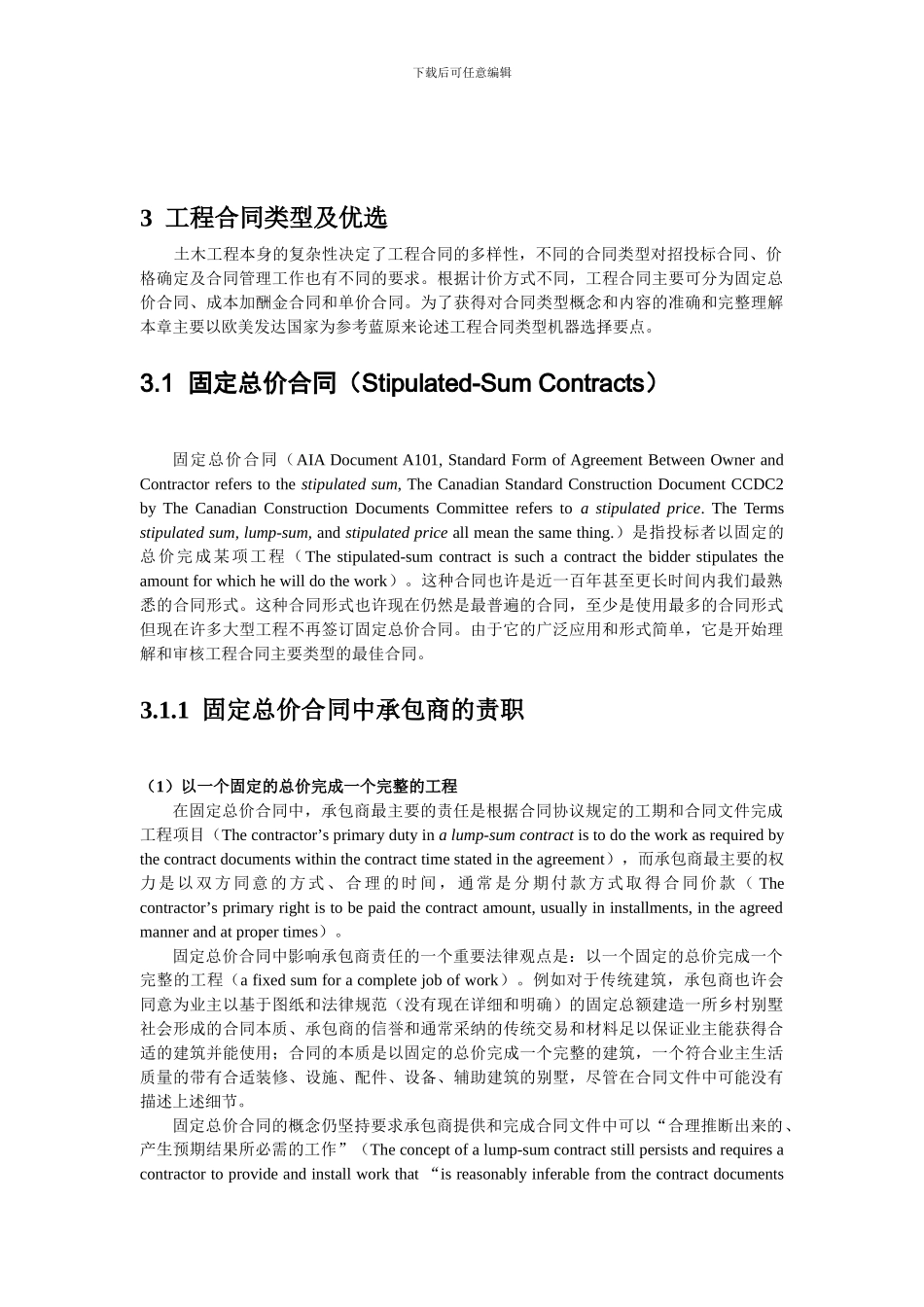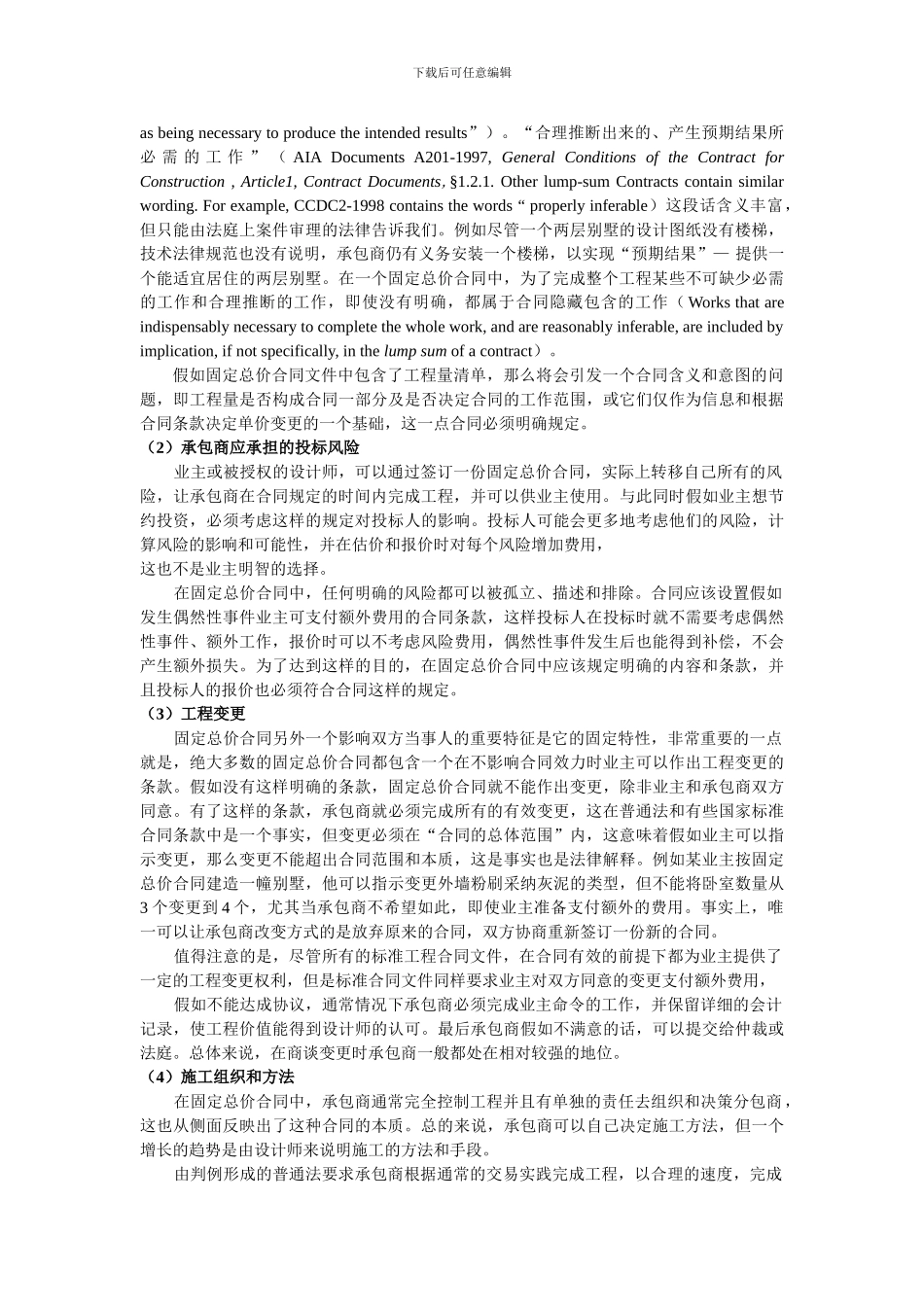下载后可任意编辑3 工程合同类型及优选土木工程本身的复杂性决定了工程合同的多样性,不同的合同类型对招投标合同、价格确定及合同管理工作也有不同的要求。根据计价方式不同,工程合同主要可分为固定总价合同、成本加酬金合同和单价合同。为了获得对合同类型概念和内容的准确和完整理解本章主要以欧美发达国家为参考蓝原来论述工程合同类型机器选择要点。3.1 固定总价合同(Stipulated-Sum Contracts)固定总价合同(AIA Document A101, Standard Form of Agreement Between Owner and Contractor refers to the stipulated sum, The Canadian Standard Construction Document CCDC2 by The Canadian Construction Documents Committee refers to a stipulated price. The Terms stipulated sum, lump-sum, and stipulated price all mean the same thing.)是指投标者以固定的总价完成某项工程(The stipulated-sum contract is such a contract the bidder stipulates the amount for which he will do the work)。这种合同也许是近一百年甚至更长时间内我们最熟悉的合同形式。这种合同形式也许现在仍然是最普遍的合同,至少是使用最多的合同形式但现在许多大型工程不再签订固定总价合同。由于它的广泛应用和形式简单,它是开始理解和审核工程合同主要类型的最佳合同。3.1.1 固定总价合同中承包商的责职(1)以一个固定的总价完成一个完整的工程在固定总价合同中,承包商最主要的责任是根据合同协议规定的工期和合同文件完成工程项目(The contractor’s primary duty in a lump-sum contract is to do the work as required by the contract documents within the contract time stated in the agreement),而承包商最主要的权力是以双方同意的方式、合理的时间,通常是分期付款方式取得合同价款( The contractor’s primary right is to be paid the contract amount, usually in installments, in the agreed manner and at proper times)。固定总价合同中影响承包商责任的一个重要法律观点是:以一个固定的总价完成一个完整的工程(a fixed sum for a complete job of work)。例如对于传统建筑,承包商也许会同意为业主以基于图纸和法律规范(没有现在详细和明确)的固定总额建造一所乡村别墅社会形成的...


